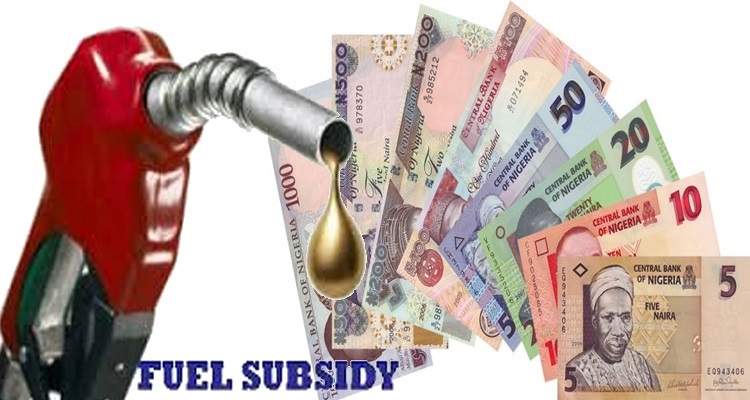Fuel subsidy removal: Fallacies, erroneous beliefs, misleading notions!
Every now and then it appears necessary to remind those holding political office that ordinary citizens have the right to hold contrary opinions, the right to express such opinions and the right for such opinions to be taken into consideration when policies are being executed. This is ever so true in the debate surrounding the […]

Every now and then it appears necessary to remind those holding political office that ordinary citizens have the right to hold contrary opinions, the right to express such opinions and the right for such opinions to be taken into consideration when policies are being executed. This is ever so true in the debate surrounding the removal of the so-called “fuel subsidy” and consequent additional hardships it is bound to impose.
It’s evident that those trusted with the authority to run the affairs of the nation are increasingly enamoured with deceptive arguments as the basis for implementing half-baked policies which increase hardships. The first erroneous argument is that subsidy in itself is a bad thing, when it isn’t. The US Declaration of Independence states that “…. all men are created equal and that they are endowed by their creator with certain unalienable rights that amongst these are Life, Liberty, and the pursuit of happiness”. It follows logically that the purpose of government is to assist citizens in achieving these objectives by subsidising their pursuit of happiness by providing financial assistance and social services.
For example, the US government subsidises agriculture by paying farmers to plant and grow crops; subsidises healthcare through a programme commonly referred to as “Obamacare”; pay rents for poor people through a welfare programme referred to as “Section 8”; while at the same time subsidising school fees through a programme called Pell Grants, as well as public transportation system. The British National Health System, unemployment benefits in Holland, Germany and throughout Europe, are all excellent examples of government taking up its responsibility to subsidise the lives and improve the welfare of citizens.
In Nigeria it is ironic that while government does nothing to subsidise the hardships being suffered by the majority, it subsidises the undeserved luxury lifestyles of those retired presidents, vice presidents, governors and deputy governors whose failure in office placed the nation in a mess in the first place!
FG: Nigeria still suffers from huge unmet need for family planning
CS-SUNN tasks FG on implementation of micronutrient deficiency guidelines
It’s untruthful to state that subsidy removal is “good for the people”, when it isn’t. The truth is that government has failed to show any technical ability to manage a subsidy regime and citizens are being made to pay for their failure. Instead of clamping down on corrupt civil servants and thieving contractors, government has decided to punish innocent citizens.
It is also completely illogical to forward the argument that the nation cannot afford to pay subsidy. Top Executives of the Nigerian National Petroleum Corporation (NNPC) admit that they have no idea of how much fuel is actually consumed in Nigeria daily, and that they only know how much fuel is allegedly imported! The simple truth is that they don’t know the actual amount the nation is supposed to be paying because citizens have been forced to “subsidise” the costs of greed, incompetence, and corruption, not the price of fuel consumed in Nigeria!
Despite this admission of failure to manage fuel imports properly, the debate has been shifted away from whether or not petrol, which is the single most consequential product in our economy, should be subsidised, to when and how it should be removed. It is also quite silly to claim that subsidy removal is for “our own good” even as it will cause an increasing number of Nigerians to slide into poverty.
Psychologists debate whether or not something that does not make you happy and increases your suffering can ever possibly be for your own good? It’s also erroneous to claim that long-suffering Nigerians must agree with economic “experts” who support whatever disagreeable course of action government wishes to take.
Economics isn’t a perfect science because the subject matter is the behaviour of man which is highly unpredictable. When “economic experts” say that the proceeds of subsidy removal “should” make more funds available for government to use wisely, they do not use the word “will”, because there is no guarantee that the funds won’t be frittered away as has been the case in the past. Indeed, reports by the Auditor-General of the Federation and the Senate Committee on Appropriations make it abundantly clear that government has proved totally incapable of rendering proper accounts for monies allegedly spent. Why use any savings to pay off debts which have been incurred and for which there is nothing to show? It makes no sense whatsoever that the solution to government’s profligacy and unaccountability is to make more funds available to them!
Under normal circumstances, there is no basis for removing subsidy without first addressing the issue of waste in government. To make matters worse the actions of the Nigerian National Petroleum Corporation Limited (NNPCL) have been far from transparent or logical. While the nation’s refineries remained moribund, they invested heavily in Dangote Refinery.
Although they could not find the $2.65 billion required to revamp Warri and Port Harcourt Refineries, NNPCL decided without public knowledge to buy 20 per cent shares in a private refinery!. Meanwhile, Nigerians have been told that they should not expect to see cheaper fuel or any financial benefits from the refinery. The only apparent advantage of NNPCL’s actions is to maximise profits for the owners of the refinery whoever they may be.
There are indeed too many fallacies, erroneous assumptions, and misleading notions as to the benefits of so-called “subsidy removal” while those agitating for it cushion themselves with the totally unjustifiable financial rewards associated with holding political office.
